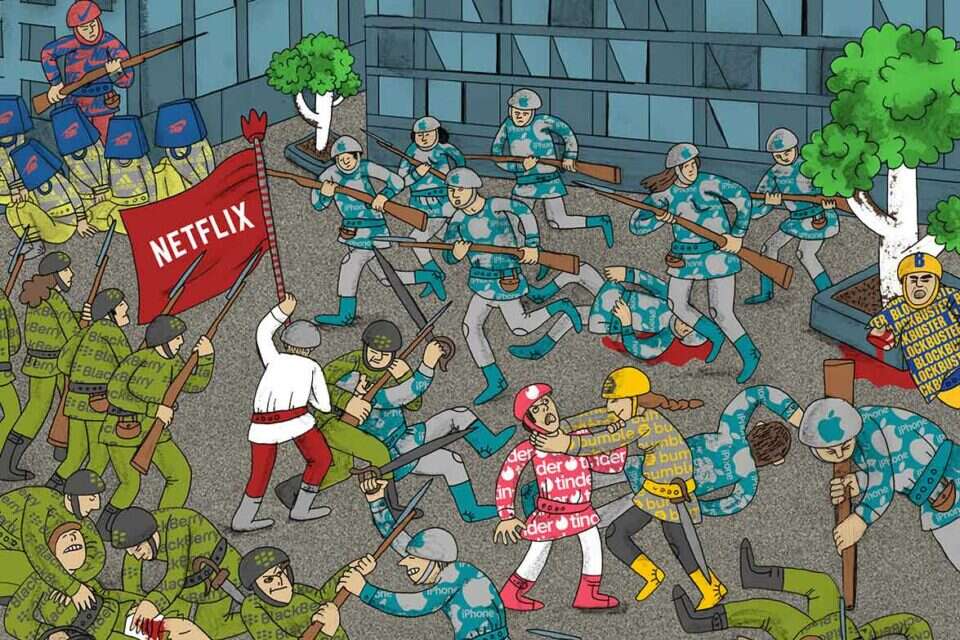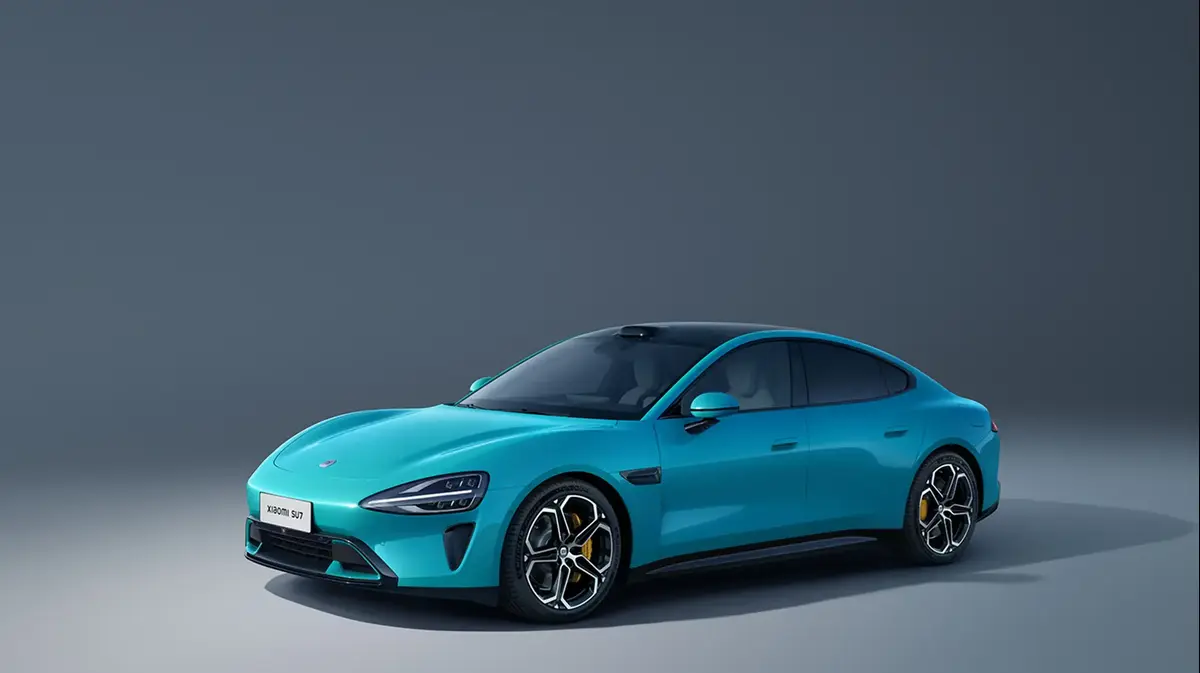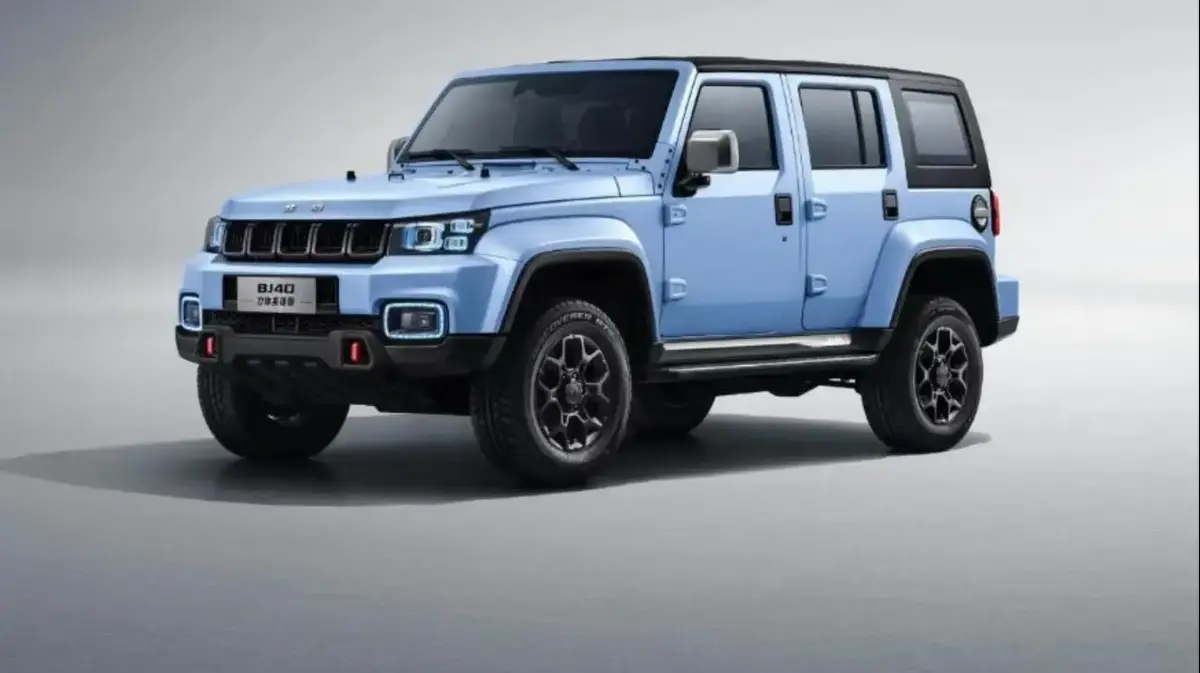The Olympic Village in Berlin is full of athletes.
The year is 1936, and among the island of the closed compound and its expatriates, suddenly unknown palms reached out a pair of shoes as a gift to the American athlete Jesse Evans.
The shoes were light, low, and six spurs stuck in their soles.
Evans did not know the man before him, but as a former shoemaker, he was impressed by the meticulous craftsmanship he held in his hands.
Not long after, Evans decided to wear the pair of shoes given to him by Eddie Dessler, later the owner of the Adidas company.
At the end of those games, Evans made history and won four gold medals in front of the amazed eyes of Adolf Hitler.
The impact on the Dassler brothers' shoe business was immediate, and Evans' victory resulted in unprecedented international demand for the brand, a demand that seems to have continued to this day.
Later the relationship between Eddie Dassler and his brother Rudy deteriorated.
Rudy started a shoe company that was eventually called Puma, while Eddie decided to change the name of his company to "Eds", short for Eddie Dessler, but discovered that the name was taken by one company, and finally adopted the name "Adidas".
"Both companies, both Adidas and Puma, became international sports giants. Over the years they managed to recover from various blows and demonstrated determination and inventiveness. This is the greatness of two companies that later became international giant brands," explains David Brown, one of the top radio broadcasters in the USA and the author of the book "The war of brands - what can be learned from the biggest business rivalries in history" (Moden Publishing).
"A great brand always includes several elements," continues Brown, "a promise for a product or service, a company's character that is linked to the product, and also a certain type of unforgettable memory - a design or a slogan. Some believe that brands should always say something about the people who use them, and thus create They have a loyalty that may develop over time into a very valuable asset."
Are these also the brands that survive beyond the life of the company that founded them?
"Right. I'm thinking of Triumph motorcycles. The company itself went under in the 1980s, but the brand gained such loyalty that when it was resurrected - the name Triumph and the unforgettable appeal of the letter R in the logo - immediately became recognizable, giving the new company a tremendous competitive advantage. Beyond customer loyalty, sometimes the biggest asset a company has is its trademark. It's so important to get it right."
The brand logo makes us love brands, but the reasons for our liking them are surely broader.
"I think many of us are loyal to products and services that provide solutions at the right price, and also values that we share. If you have shirts with a brand logo on them, ask yourself why. For years we have classified people into groups - you are a Mac person or a Windows person, for example, and still - There is no question as to who has a stronger brand. I think it is because one brand did a better job of conveying its mission to the general public - what is important to it, what it represents and the value it gives to the user experience. These are important things that make us love brands."
"Logos fascinated me."
Brown, photo: Steven Noreyko
Intelligence and exercises are questionable
Brown grew up in the US, in a small town where Coca-Cola was the dominant brand ("opening a can of Pepsi is considered almost an act of treason"). His interest in brands began when he was a small child. "As a child, logos fascinated me, and they still fascinate me today.
I wanted to find what they represented and symbolized, why they were designed the way they were designed, what message they were trying to convey.
After digging a little into the subject, I always discovered interesting stories behind them all."
He holds doctorates in law and communications from the University of Washington and the University of Texas, respectively.
Over the years, he presented the business program "The Market Square" on public radio, and then began hosting one of the most popular podcasts in the world, "The Business Wars", on which his new book "The Brand War" (Moden Publishing) is also based.
Each series of episodes in the podcast, which has about 4 million downloads a month ("95 percent listen until the end of the episode"), tells about a stormy war between two iconic companies: Starbucks vs. Duncan Donuts, Uber vs. Lyft or FedEx vs. UPS.
This is how the listeners and readers get a glimpse into the minds of the leaders who led the various brands.
"In the book," explains Brown, "the ambition is to dive deeper than the limits of the audio format to really get to the heart of the conflict, and also to reveal significant lessons that can be drawn from it. We show how leaders of all types struggle to achieve opposing goals. The strategies are known, but sometimes the victories are achieved Due to unexpected details, and even a small stumble can bring down an empire. For me, telling these stories as a podcast and now as a book - it's a never-ending adventure."
The themes of the chapters in the book are inspired by the chapters of the book "The Art of War" by Sun Tzu.
"The correspondence between the two books is not complete, but Son Deza undoubtedly provided us with inspiration," emphasizes Brown.
So, for example, if Sun Tzu gives advice about the use of spies and military intelligence, one of the chapters of the current book deals with the use of questionable exercises in the business world.
"The best way to win a business war is through cunning maneuvering, bordering on criminality, if you will. But great leaders know how to strike with the necessary force, and stop just before the red line is crossed."
Brown says that one of the business strategies that impressed him while writing the book is related to that of Netflix.
"At a time when Blockbuster found a solution to satisfy the American hunger for entertainment content, Reed Hastings, CEO and founder of Netflix, focused on the points where the experience was not optimal, and thought beyond video tapes, CDs or any other physical content.
"In the beginning, remember Netflix wasn't a streaming service. They could have stopped at their very successful DVD-by-mail rental service, but they kept innovating, started streaming content, and created fierce loyalty among growing legions of satisfied customers. Once that happened, Blockbuster was no longer able to catch up."
But the entry of streaming into the game was an opportunity for Blockbuster, just as it was for Netflix.
"True, and what's more - in the first place Blockbuster was better positioned to lead a streaming revolution. But it lost the battle, as happened to many other companies in other fields. Sun Tzu said that even when you win, if you keep fighting for a long time - your strength and sharpness Yuck. Many companies have spent many years climbing mountains and reaching peaks, thinking the war was over with their victory. But there is always, always, an opponent around the corner. Someone with the same idea as you, one who is willing to steal your first-mover advantage and learn from your mistakes and your victories.
"Blockbuster vs. Netflix shows what can happen when you think the war is won, as Blockbuster thought, and on the other hand - what happens when you have the audacity to fight the giants that dominate the market, as Netflix dared to do, and as, by the way - Ray Kroc, the developer of the McDonald's chain - dared to do . Kroc could have just taken the McDonald's name, it was the most obvious thing to do, but he refused the temptation and improved an existing formula for making fast food better and more consistently than anyone else at the time."
If we stay for a moment in the field of streaming, what do you foresee in terms of the battle between Netflix, Disney and Apple, for example?
"That's a tough question. During the pandemic, many people subscribed to a plethora of content service providers. Now, with inflation and the prospect of a global economic downturn, people are looking again at their spending and wondering if streaming services can be cut. My sense is that while binge-watching was once nurtured by platforms Streaming, these services are finding that releasing new and exclusive content incrementally—say, an episode a week—creates greater loyalty to a particular service. Content is still king, but managing how we get new content may be the key to how services retain their viewers."
Cracking Bumble
Whitney Wolff was fired in disgrace from Tinder, and after a few months she recognized similarities between the negative experiences she had with the company, and the experiences of women who use Tinder.
She realized that while using the app, many women are dealing with toxic male behavior, and decided to start a new company, a dating site, but one that puts women first.
Founded in 2014, Bumble is now the second most popular dating app after Tinder and continues to grow steadily.
"Whitney Wolff's story is particularly inspiring," says Brown, "here is someone who is involved in creating a game-changing product, Tinder, and deals with issues of toxic male behavior. Wolff sees a parallel between her experience at the company and the experience of many Tinder users. This insight lies There is an opportunity for positive change in the form of the first women-based platform.
"She says that every week she is told she needs to be tougher and rougher, but she doesn't do it. In fact," says Brown, "she attributes her success to the positive culture at Bumble. She doesn't hold grudges and is competitively and healthily busy bypassing Tinder."
Brown believes that the rise of more and more dating apps is no accident, of course.
"The need for romantic relationships will not disappear," he adds, "however - online dating is no longer the novelty it was. It is mainstream. Match Group, the operating company of Tinder along with other dating sites, has an income of approximately 3 billion dollars, and the dating app market Rolling even more than that.
"But the 'sweep' seems woefully inadequate, and a bit inhumane. The key to understanding the future of this sector will be finding where people are uncomfortable; and dating apps have a serious thing to do with customer dissatisfaction."
"I think we will see more attention to the different types of users: casual versus long-term partner seekers. There will need to be an emphasis on generational behavior and the needs and habits of specific user segments. The irony is that despite the great dissatisfaction surrounding dating apps, they are still terribly popular. ID The sources of dissatisfaction, as mentioned, will be a central element in the next generation of users of dating apps."
They didn't keep up.
Blockbuster branch in Miami, 2005, photo: AFP
"A giant doesn't always fall"
The dissatisfaction that Brown talks about is of course relevant to many other companies, brands and sectors.
Thus, for example, he gives as an example the fast fashion industry, and parallel to it - the sensitivity of people to various environmental consequences.
"Fast clothing is here to stay," he explains, "but more people, more than in the past, are becoming sensitive to the environmental consequences of fast fashion, and some of the industry is also very critical of it. Whoever survives in fashion will have to reflect the values of their customers - or the customers They will find other retailers who will do it."
With the optional survivors, Brown names, of course, the two fashion giants Zara and H&M, which he doesn't really care about.
Although during the corona they had to close thousands of branches, they responded quickly and encouraged online sales.
"The change they created is completely fundamental. Instead of keeping our clothes, we see them as disposable objects. We buy and throw away clothes at the fastest rate in history. Their next challenge is the challenge of sustainability. We, the customers, will wait and see how quickly they will respond to the new preferences and our environmentalism".
In your words, you describe a certain evolution of brands. Companies change according to the consumer order of the day, and those who do not keep up - are left behind in the best case or disappear altogether in the worst case. The question is, perhaps, who will survive the evolutionary process in question - will Apple, iPhone, Netflix and Microsoft continue to dominate the market?
"I'm not necessarily sure I see it as an evolution of brands, but more like brands pushing aside popular competitors. It's always happened, and there's no rule that says giants won't stay giants. A giant doesn't always fall. Ask Coca-Cola. The nature of their business has changed, but They are diverse and have found ways to be nimble and respond quickly to challenges and changing market preferences.
"Who will qualify for the iPhone? Many will say that Samsung's Galaxy is the main competitor, but let me surprise you - I would keep an eye on Motorola: they have the resources and ideas required to make a big push to return to the dominant position they once held."
Uniqueness.
Elon Musk inaugurated a Tesla factory in Germany, photo: REUTERS
Will Mercedes compete with Tesla?
Some other brands we expand our conversation on are Mercedes and Tesla, Apple Watch and Rolex.
Although their categories are not exactly the same - I ask Braun, does he think that an Apple Watch, for example, can beat long-standing luxury brands like Rolex?
Can Tesla beat Mercedes?
"I once asked a group of watch enthusiasts to rate the best-selling watch brand in the world. No one mentioned Apple, which is the correct answer of course," he says.
"Look, Apple is a publicly traded company. Rolex is not. Rolex is a luxury brand that makes watches. Apple is not a luxury brand. Are they competing? Not really. Someone who wears an Apple watch wears it for a different reason than someone who wears a Rolex watch, or another luxury watch brand. If we want to check the time, we can do it with the smartphone. So what exactly is the user buying? An experience. The social effect of ownership.
"Mercedes and Tesla make some of the most unique cars in the world, but each one says something a little different about its owner. That something is not as easily replaced as changing keys. Tesla makes a well-established car that uses premium materials and an exclusive charging infrastructure that makes the electric car a reality for Really, and more successful than anyone else in the past.
"Mercedes has a history and heritage in the automotive industry, and it produces luxury flagships that often run on internal combustion engines. I'm not sure the question is whether Tesla will beat Mercedes."
Perhaps the question is why Mercedes doesn't make an electric car as popular as Tesla's.
"The market has already shown that there is plenty of room for many car brands: Tesla and Mercedes can quietly live side by side, but if Mercedes produces an electric car at the same luxury levels as Tesla and at the same price level - that is conceivable. Are we on our way there? Not sure in the near future.
"Can Tesla produce a vehicle with the same prestige and reliability levels as Mercedes and at the same price level? Not sure at all. Does this make one brand better than the other? It already depends on the question of why a person wants one thing or another.
"The reasons for owning an Apple watch versus a Rolex are as different as the reasons for owning a Tesla or a Mercedes - and these reasons are broader than the face value of the brand. In some cases, the value of the brand is already imbued with history and reputation - which makes it difficult for other competitors to challenge it."
In conclusion, I ask Brown about the future of brands, and the future of their unique characteristics, and if these are expected to change.
"It seems that brands will continue to develop and reflect the changing spirit of the times, and if the past is any indication - brands will only become more and more common," he says.
"But the overload of brands will make it difficult for them to stand out. It's just a gut feeling, and maybe also a hope, but I think brands that will become the giants of tomorrow will be a combination of players with heritage and new, value-driven companies that will inspire people and make them align with them. And the users will be, As they have always been, the best brand ambassadors that no money can buy."
Ranp@israelhayom.co.il
were we wrong
We will fix it!
If you found an error in the article, we would appreciate it if you shared it with us













